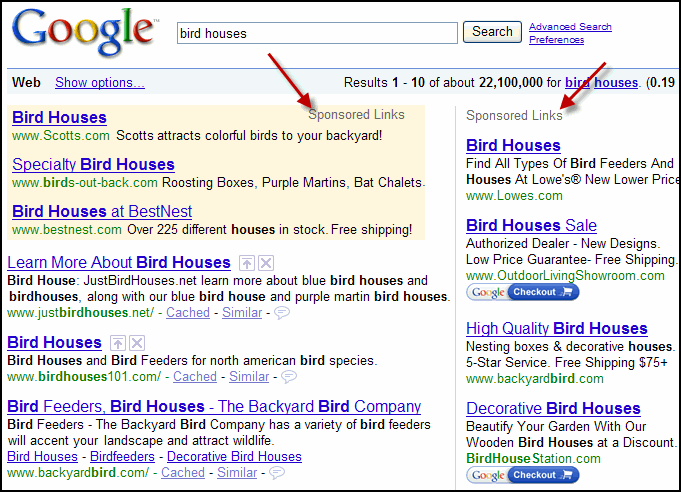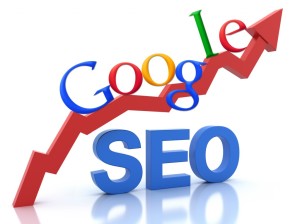 Too many businesses set up a Google Adwords campaign years ago and haven’t done more than give it a cursory glance every now and then. Chances are, its just sitting there doing its own thing. There are some simple steps you can take which will give you the answer as to whether you should continue to spend money on Google Adwords, or similarly, if you’re thinking of using this form of online advertising, whether it is going to be worth the time and money for your business.
Too many businesses set up a Google Adwords campaign years ago and haven’t done more than give it a cursory glance every now and then. Chances are, its just sitting there doing its own thing. There are some simple steps you can take which will give you the answer as to whether you should continue to spend money on Google Adwords, or similarly, if you’re thinking of using this form of online advertising, whether it is going to be worth the time and money for your business.
In this blog article, you’ll learn how to evaluate whether paying for Google Adwords is actually worth your money.
I am going to make some sweeping generalisations which will be true for the vast majority of cases, but obviously there are no absolutes. What I’m about to say should be true for most of you reading this and be applicable to your business.
Where do I start?
Flyers/Junk Mail
Most days, every week, junk mail arrives at my house. Often, there are several copies of the same flyer; the product or service is of no interest to me; and no doubt in a few days another bundle of the same flyers will arrive again. Why?
Why do businesses continue to spend £100’s or $100’s every month, doing what is essentially no different than paying someone to put paper into a landfill site? Just how effective is it? It can be effective if it is done correctly, but how many businesses are measuring the rate of response that it generates? How many businesses, EVERY TIME a customer comes to you for your product or service, are actually taking the time to find out if they are a new customer, and if they are, how they found you. How else are you going to know whether you’re getting a good ROI(return on investment)?
If your business was planning advertising many years ago, when colour printing was first introduced, paying the extra money to be the first company advertising on colour flyers, would most likely have attracted a lot of attention which would have converted into customers and new business.
But, over time, as more and more businesses understood the advantages of it, and used the same techniques, the appeal with the public would have worn off.
The same can be true of Adwords, the ‘paid for’ advertising on Google. If you are paying to advertise on Google, ask yourself:
- How long ago did you set your campaign up?
- Do you record how your customers find your business?
- Have you calculated the profit per customer, I.e. profit vs advertising spend?
- Do you monitor how each advert is performing?
- Do you vary the adverts in your campaign depending on their performance?
- When did you last review whether you should have an adwords budget in your marketing plan at all?
If you had asked me 4 or 5 years ago whether your business should pay for advertising on Google, chances are I would have said yes, most of the time.
But, times have changed and so has the behaviour of people using Google.
Have you realised that the Apple Ipad was first released in April 2010. Yes, only 3 years ago, that’s how fast technology changes and moves on, and your marketing strategy online needs to be refreshed regularly otherwise it will fall out of date.

How do people use Google? Well, go back far enough and the usual pattern of behaviour was that people would start from the top of the page and work down. If they did click in the organic results, they might find what they were looking for, but a lot of the time they didn’t.
The sponsored listings at the top (with a lightly shaded background and the left arrow on the picture) used to get the most clicks as did the other sponsored listings in the right hand column (marked by the other red arrow).
It meant that if you paid to be there, and your advert listing was configured correctly, you’d get a great click through rate, and that would usually translate into good profit, sometimes phenomenal profit.
But times have changed. As the organic results have improved in quality (the results in the bottom left of the page), the pattern of behaviour amongst users of Google has changed dramatically.
80% of traffic on Google is Organic!!!
The behaviour of people on Google has changed so much in fact, that now, at least 80 % of traffic generated by Google is via the organic results. These are the results that appear there, because of Google’s algorithms. The quality of the information on the websites whose results appear naturally and for free, has improved so much that people are steering away from the paid for adverts.
To a certain extent it doesn’t matter why or what the psychology is behind this shift but it is important to acknowledge that it is real. How does this determine whether you should spend money or not?
As I suggested at the beginning of this post, the answer isn’t straightforward. But here goes:
The determining elements are, the keywords that are relevant to your campaign; how much they cost; how many websites you are competing against. This information can be found by doing keyword analysis of your target market (specific product or service). The results, if you know what you’re looking for, will give you a strong indication whether you will be able to rank highly on search engine results organically and also inform you of the words you need to use in ad listings.
Ideally, you should test the results of Adwords to see if it is worth the cost for your particular product or service. By using an optimised ad campaign you can see if the ROI is good enough. You should set up a campaign, with a variety of keywords and variation of adverts and it is possible to optimise a campaign too. You optimise an ad campaign by:
- Using a range of keywords applicable to the product or service
- Create a variety of adverts for each keyword
- Monitor the results, disregard those with too low click through rates
- Disregard poor performing adverts or change them and re-test
- Use long tail keywords which are often cheaper
Set a fixed budget and monitor the results for a month or two. Make sure you can track the traffic coming from paid for listings and how much profit is made from it. This is your ROI.
If its marginal its taking more cost in time to manage it than you’re getting back; if its a loss, change it radically or stop immediately, if you’re getting a good margin, consider upscaling it. Upscale means that if £100 broght in £150 profit, then spend £1000 a month to get £1500 a month profit etc.
For some, using Google Adwords is still bringing in good enough results, though for how much longer remains to be seen. It is the case that other paid for marketing such as on Facebook is also a possible choice, but with Google still accounting for the majority of web traffic, the focus of attention will still be SEO vs spending money on Adwords.
Through all of this, don’t forget all the other ways to advertise online, social media, bulletin boards, online business directories, forums, the list is endless. Just make sure you don’t forget about it or if you haven’t got the time, find someone to do it for you.
Did you find this article useful? Add a comment below or share with others using the share buttons.
Still have unanswered questions? You can send me a message via the contact page.



